Do companies need social media? Ever notice HR leaders shying away from this question, typically being led by the Marketing or IT group? Why is that? Why do our HR leaders focus more on the risks vs. the potential rewards of implementing this technology within the enterprise? And when HR leaders DO chime in, the conversation is shifted to the organization’s social media policy or lack thereof, the HR handbook, or some other compliance topic of little strategic benefit to the company. It’s almost like HR dumbs down the conversation or ignores it altogether.
It seems every day there is a new article, blog post, tweet, and other commentary questioning whether companies “need” social media. It’s akin to asking, do companies “need” a website, email, PC’s, or mobile phones? The answer is obvious. Of course no company “needs” social media, although many will likely turn to Facebook’s Marketplace when looking for a buyer for their failing business.
As Human Resources professionals (and learning coaches―a.k.a. instructional designers), one of the things we’ve learned is that the medium is not the message1. Just as we've been learning for years without all of the technology at our disposal today, companies have been conducting business for years without social media and will be conducting business for many years to come without it. So, stop fussing about whether your company needs social media- the answer is... it doesn't need it. As a profession, we should stop obsessing over hypotheticals and focus our energies on the needs of our companies we can meet―via social media or otherwise. This is where our greatest opportunity for impacting the bottom line lies.
Here’s a list of what companies do need, and by all means feel free to add more to list with your comments below:
- a productive and engaged workforce able to compete and succeed in today’s global market,
- a means with which to attract, recruit, communicate with, and provide challenging work to the digital natives entering the workforce,
- a dynamic intranet, where employees can connect and quickly locate information, expertise, and each other to collaborate and execute the organizations plans,
- to stop mass marketing their products and services via mediums where their message is lost in a sea of useless noise, and to engage their customers in a very personal, authentic and focused manner,
- a “new and improved” vision for their learning management system, one that can accommodate learning events and opportunities not conceived of in the HR department- but born in “the field”, informal learning, and enables employees to learn from one another up, down and across the organization―geographical boundaries be damned,
- a means with which to capture some of the knowledge that’s about to walk out of their doors when baby boomers accelerate their retirement after this economic malaise we are currently in, and finally
- a good dose of leadership from their head of Human Resources to collaborate with their IT department, and educate the c-suite on how social media can and should be considered as part of their talent management strategy―and not just their marketing mix, to meet some of these needs
Social media technology has the potential to transform the enterprise and how we work, but only when implemented as part of a larger human resources strategy, with clear goals and objectives, and when applied to needs it can effectively meet. When implemented in pursuit of one of these goals above, and tracked with appropriate metrics, HR leaders will be able to demonstrate the value of implementing these systems, and not simply the risks which are so prominently written about that make the news headlines every day.
- Clark, R. (1983). Reconsidering research on learning from media. Review of Educational Research 53(4), 445-59.
- Alex Santos
Alex is a co-founder and Managing Member of Collabor8 Learning, LLC, an instructional design and performance management consultancy. His firm collaborates with organizations to enhance the way they develop and train their people. To learn more about Collabor8 Learning, click here.
Alex can be reached at 786-512-1069, alex@collabor8learning.com or via Twitter@collabor8alex.


